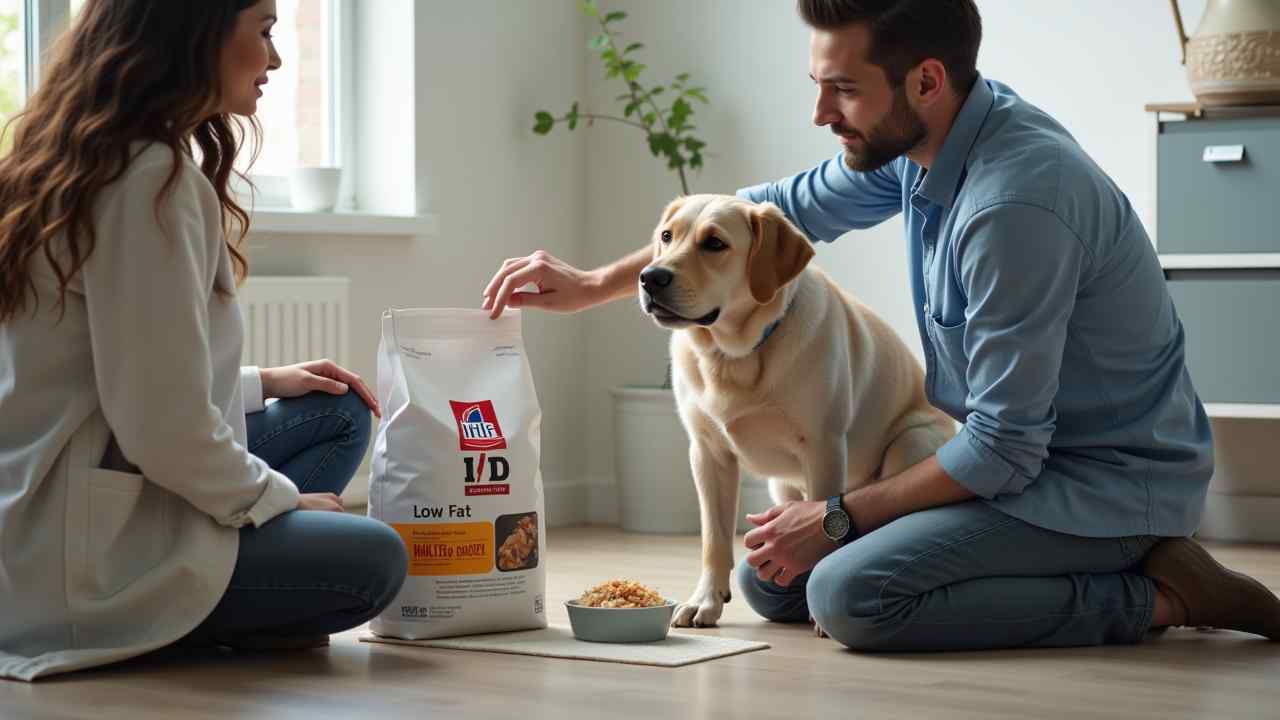
🩺 A Vet's Guide to the Dog Pancreatitis Diet (What to Feed Your Dog)
🩺 A Vet's Guide to the Dog Pancreatitis Diet (What to Feed Your Dog) 🩺
❗ CRITICAL VETERINARY INFORMATION: Pancreatitis is a serious, painful, and potentially life-threatening medical condition in dogs. A specific diet is a cornerstone of treatment and must be prescribed and supervised by your veterinarian. Do not attempt to treat this condition on your own. This guide is for informational purposes only.
If your dog has been diagnosed with pancreatitis, it can be a scary and overwhelming time. Your veterinarian has likely emphasized that diet is a crucial part of their recovery and long-term management. A proper dog pancreatitis diet is not just about nutrition; it is a form of medicine.
This guide will explain the principles behind this therapeutic diet. We will cover what foods are safe and what you must avoid. Let's explore the best way to support your furry friend's healing. ✅
🤔 What is the Core Principle of a Pancreatitis Diet?
The core philosophy of a dog pancreatitis diet is simple: give the pancreas a rest. The pancreas is an organ that produces powerful digestive enzymes. These enzymes are released when your dog eats, especially when they eat fat.
In a dog with pancreatitis, this organ is inflamed and angry. The goal of the diet is to provide nutrition without stimulating the pancreas. The single most important rule is that the diet must be ultra low-fat. Fat is the primary nutrient that triggers the pancreas to release its enzymes. By strictly limiting fat, you allow the pancreas to calm down and heal.
The food must also be highly digestible. This means it should be easy for your dog's gut to break down and absorb, putting minimal stress on the digestive system.
✅ What Are the Best Foods for a Dog with Pancreatitis?
There are two main options for a dog pancreatitis diet. Your veterinarian will recommend the best one for your dog's specific situation. It is crucial to follow their advice exactly.
1. Why are Veterinary Prescription Diets the #1 Choice?
For long-term management, a veterinary prescription diet is the safest and most effective option. These diets are precisely formulated by veterinary nutritionists. They guarantee that the food is low in fat, highly digestible, and nutritionally complete. Brands and formulas include:
- Hill's Prescription Diet i/d Low Fat
- Royal Canin Veterinary Diet Gastrointestinal Low Fat
These foods are considered the gold standard. They take all the guesswork out of feeding your dog. You can get these directly from your local veterinarian's office ("veteriner kliniği") here in Bursa.
2. What is a Homemade "Bland Diet"? (For Short-Term Use Only)
For the immediate recovery phase after a flare-up, your vet may recommend a temporary homemade bland diet. This is a very simple meal. It is not nutritionally complete for long-term use.
A typical bland diet consists of:
- A Lean Protein: Boiled, skinless, boneless chicken breast ("tavuk") is the most common choice. Boiled lean ground turkey or low-fat cottage cheese can also be used.
- A Simple Starch: Plain, boiled white rice is the standard.
You would typically feed a mix of about 75% rice and 25% lean protein. This is only to be used for a few days, as directed by your vet.
🚫 What Foods Must Be Absolutely AVOIDED?
This is a non-negotiable part of the dog pancreatitis diet. You must avoid all high-fat foods. Even a small amount of the wrong food can trigger a painful flare-up. You must avoid:
- Fatty meats (bacon, sausage, lamb)
- Greasy table scraps and human food
- Oils, butter, and grease
- Most commercial dog treats
- Cheese ("peynir") and full-fat dairy
⭐ What About Treats?
Most regular dog treats are too high in fat. For a dog with a history of pancreatitis, treats must be chosen very carefully. Safe, low-fat options include small pieces of:
- Carrots
- Green beans
- Apple slices
Always give treats in moderation. Pancreatitis is a serious condition that requires a lifelong commitment to a low-fat diet. By working closely with your vet, you can help your dog live a happy, comfortable, and healthy life. 🐾